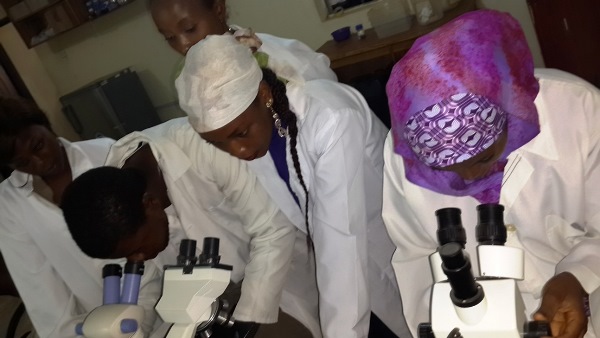In January 2013, the Africa Indoor Residual Spraying (AIRS) project, funded by the President’s Malaria Initiative (PMI), partnered with Nigeria’s Nasarawa State University, in Keffi, to establish the first insectary in the state.

The field of entomology in Nigeria is improving as university students gain access to the equipment and facilities they need to conduct their research at a newly established insectary, funded by the President’s Malaria Initiative. Source: Michael Olayink
In January 2013, the Africa Indoor Residual Spraying (AIRS) project, funded by the President’s Malaria Initiative (PMI), partnered with Nigeria’s Nasarawa State University, in Keffi, to establish the first insectary in the state to improve the country’s entomological monitoring capacity. Insectaries provide an optimum laboratory environment for rearing mosquitoes, which are needed for entomological monitoring to support malaria programs.
Sule Abdullahi, a Junior student at Nasarawa State University, said, “I have learnt a lot of things in the insectary, such as, mosquito identification, mosquito control, mosquito dissection and the use of various equipment. I intend to apply the knowledge to further my studies in medical entomology.”
The insectary also supported the 2013 AIRS spraying campaign in Nasarawa State and supports the ongoing PMI-funded malaria vector surveillance in six sentinel sites located across five geopolitical zones of the country.
Since it was established, the insectary has supported the research thesis of 10 students carrying out their undergraduate program and 10 students in a six month mentoring program. Based on its success, the University is currently considering establishing a department of Medical Entomology to further support entomological research and ultimately contribute to combating malaria in the country.
This story was taken from www.africairs.net
